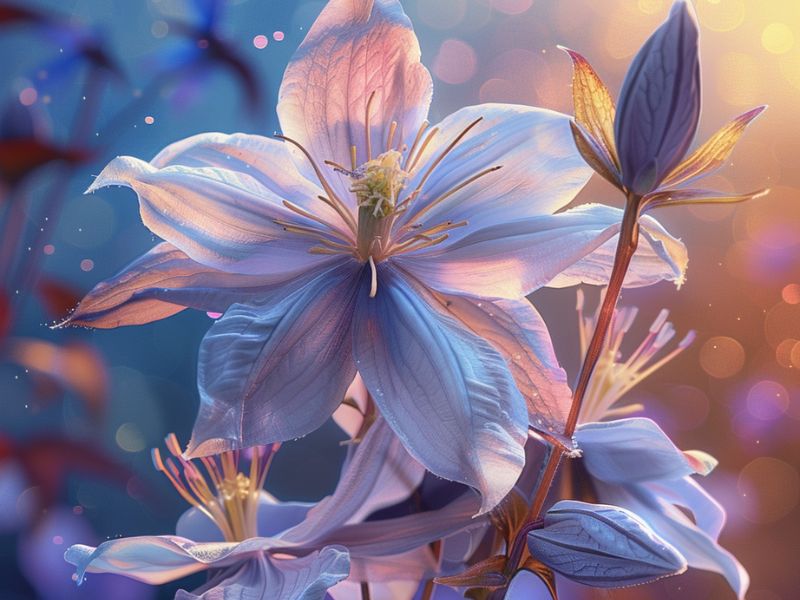When we delve into the realm of druid names, we’re not just talking about a simple label. These names carry with them an air of mystique, a connection to nature, and a deep-rooted history that dates back to the ancient Celtic tribes. They serve as a bridge between the physical and the spiritual, offering insights into the personality, destiny, and the very essence of the being they belong to. In today’s world, where the thirst for connection with nature and the ancient ways is ever-growing, understanding the significance of druid names can be a journey of self-discovery and spiritual awakening.
The Roots of Druidic Nomenclature
The history of druid names is as fascinating as the myths and legends that surround the druids themselves. Originating from the Celtic regions of Britain, Ireland, and Gaul, these names are deeply entwined with the languages and the natural landscapes of these areas. They reflect the druids’ roles as priests, teachers, and judges, embodying their connection to the earth, the elements, and the celestial bodies. Understanding the roots of these names opens a window to the past, offering a glimpse into the lives and beliefs of the ancient druids.
Types of Druid Names
Druid names can be categorized in various ways, from ancient names that have been passed down through history to modern adaptations that blend traditional elements with contemporary flair. Some names are specific to regions, reflecting the local dialects and landscapes, while others are more universal, transcending geographical boundaries. Each type of druid name has its own charm and significance, catering to different facets of the druidic tradition.
Crafting Unique Druid Names
Creating a unique druid name is an art form. It involves drawing inspiration from nature, adhering to ancient naming conventions, and sometimes, turning to modern name generators for a spark of creativity. The process is deeply personal and reflective, requiring an understanding of the meanings and the energies that the names convey.
Druid Names in Mythology and Legend
Many druid names we know today are derived from mythology and legend, bearing stories of heroic feats, divine connections, and magical powers. These names not only serve as a testament to the druids’ revered status in ancient societies but also as a source of inspiration for those looking to name their children, pets, or even characters in creative writing with a name that holds a deeper meaning.
The Role of Nature in Druid Names
Nature is at the heart of druidic naming conventions. Names might reflect the characteristics of animals, the beauty of plants and trees, the power of the elements, or the mystery of the celestial bodies. This connection to nature is a core principle of the druidic belief system, emphasizing the interdependence of all living things.
100 Druid Names & Meaning
Here’s a list of 100 names with their meanings, encompassing a variety of origins and themes:
- Aeronwen – “Fair, blessed berry” (Welsh)
- Aiden – “Little fire” (Irish)
- Alaric – “Ruler of all” (Germanic)
- Amara – “Grace” (German, Italian)
- Bella – “Beautiful” (Italian)
- Branwen – “Beautiful raven” (Welsh)
- Briar – “Thorny plant” (English)
- Bruno – “Brown” (German)
- Cadeyrn – “Battle king” (Welsh)
- Caleb – “Faithful, devotion, whole hearted” (Hebrew)
- Cernunnos – “Horned one” (Celtic deity)
- Cora – “Maiden” (Greek)
- Danu – “Mother goddess” in Celtic mythology
- Dervla – “Daughter of the poet” (Irish)
- Diana – “Divine” (Latin)
- Drake – “Dragon” (English)
- Eirlys – “Snowdrop” (Welsh)
- Elowen – “Elm tree” (Cornish)
- Ethan – “Strong, firm” (Hebrew)
- Evelyn – “Wished for child” (English)
- Faolan – “Little wolf” (Irish)
- Felix – “Happy, fortunate” (Latin)
- Fiona – “Fair, white” (Scottish)
- Fionnghal – “White stranger” (Scottish)
- Gavin – “White hawk” (Welsh)
- Gemma – “Precious stone” (Italian)
- Glendower – “Valley of water” (Welsh)
- Gwydion – “Born of trees” (Welsh)
- Harper – “Harp player” (English)
- Hawthorn – “Where hawthorns grow” (English)
- Hazel – “The hazelnut tree” (English)
- Heddwyn – “Blessed peace” (Welsh)
- Ierne – “Ireland” (Old poetic name for Ireland)
- Iolo – “Worthy lord” (Welsh)
- Isaac – “He will laugh” (Hebrew)
- Ivan – “God is gracious” (Russian)
- Jade – “Precious green stone” (Spanish)
- Jarilo – “Spring, fertility” (Slavic mythology)
- Jorunn – “Horse love” (Norse)
- Julia – “Youthful” (Latin)
- Kai – “Sea” (Hawaiian)
- Kara – “Friend” (Turkish)
- Keelin – “Slender, fair” (Irish)
- Keridwen – “Blessed poetry” (Welsh, associated with a goddess of wisdom)
- Leo – “Lion” (Latin)
- Liam – “Strong-willed warrior” (Irish)
- Lir – “The sea” (Irish mythology)
- Llewellyn – “Leader” (Welsh)
- Maelgwn – “Prince of hounds” (Welsh)
- Maya – “Water” (Hebrew), “illusion” (Sanskrit)
- Mia – “Mine” or “bitter” (Italian, Hebrew)
- Morrigan – “Phantom queen” (Irish mythology)
- Niamh – “Bright” (Irish)
- Noah – “Rest, comfort” (Hebrew)
- Nolan – “Champion” (Irish)
- Nuada – “Cloud maker” (Irish mythology)
- Oisin – “Little deer” (Irish)
- Olivia – “Olive tree” (Latin)
- Ophelia – “Help” (Greek)
- Orlaith – “Golden princess” (Irish)
- Parker – “Park keeper” (English)
- Paxton – “Peace town” (Latin)
- Peregrine – “Traveler” (Latin)
- Pryderi – “Care” (Welsh)
- Queran – “Dark one” (Irish)
- Quillan – “Cub” (Irish)
- Quincy – “Estate of the fifth son” (French)
- Quinn – “Wisdom, reason” (Irish)
- Rhiannon – “Great queen” or “witch” (Welsh)
- Riley – “Valiant” (Irish)
- Rose – “A flower, a rose” (Latin)
- Rowan – “Little redhead” or the rowan tree (Scottish)
- Sebastian – “Venerable, revered” (Greek)
- Siofra – “Sprite” (Irish)
- Sophia – “Wisdom” (Greek)
- Sorcha – “Brightness” (Irish)
- Taliesin – “Radiant brow” (Welsh, associated with a legendary bard)
- Taranis – “Thunderer” (Celtic deity)
- Tristan – “Sadness, sorrow” (Celtic)
- Tyler – “Tile maker” (English)
- Uisdean – “Intelligent” (Scottish)
- Uma – “Light, tranquility” (Sanskrit)
- Una – “One, unity” (Latin)
- Uriel – “God is my light” (Hebrew)
- Valentina – “Strong, healthy” (Latin)
- Verbeia – “Sacred river” (Celtic deity)
- Violet – “Purple/blue flower” (Latin)
- Vivianne – “Lady of the lake” in Arthurian legend
- Willow – “Willow tree” (English)
- Wyatt – “Brave in war” (English)
- Wylda – “Wild” (English)
- Wynn – “Fair, pure” (Welsh)
- Xanthe – “Golden, yellow” (Greek)
- Xavier – “New house” or “bright” (Basque)
- Xenia – “Hospitality” (Greek)
- Yara – “Small butterfly” (Arabic)
- Yarrow – “Sacred meadow” (English)
- Yseult – “Fair lady” (Celtic, associated with Tristan and Isolde)
- Zephyr – “West wind” (Greek)
- Zoe – “Life” (Greek)
These names represent a wide range of cultures and meanings, offering a beautiful diversity in their origins and the sentiments they convey.
Druid Names: The Take Home
Names are far more than mere labels; they are a reflection of identity, culture, and history, carrying with them the stories, traditions, and meanings that have been passed down through generations. Whether inspired by nature, derived from ancient languages, or borne out of mythology and legend, each name holds a unique essence and significance. As we explore the origins and meanings of these names, we not only deepen our understanding of the rich tapestry of human culture but also connect more profoundly with the stories and values that define us. In the end, choosing a name becomes an act of creativity and a personal expression of our deepest connections to the world around us.



